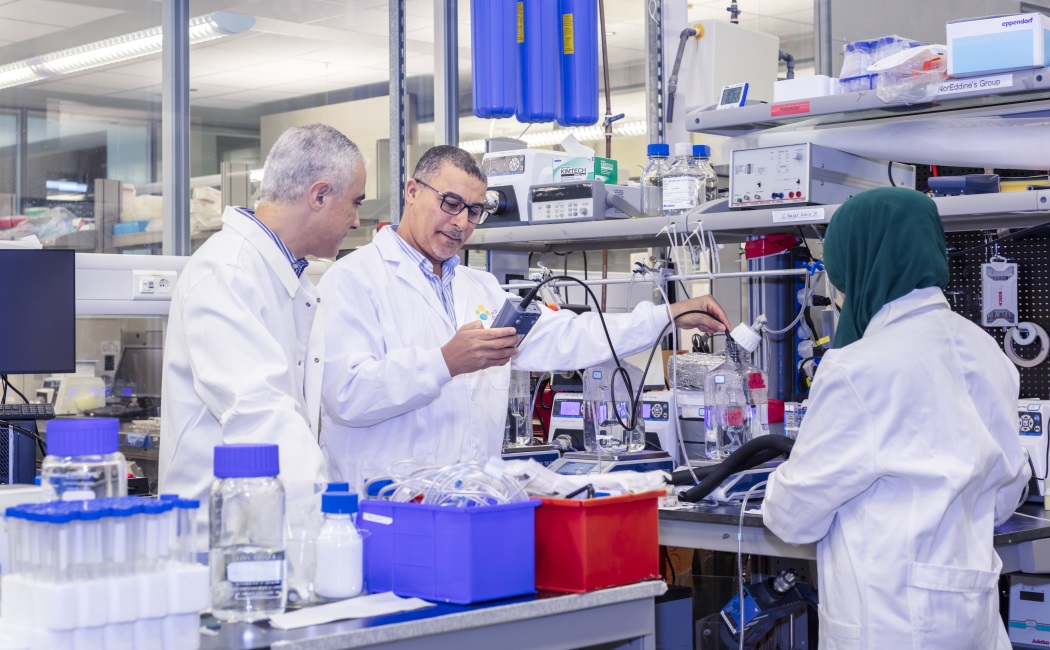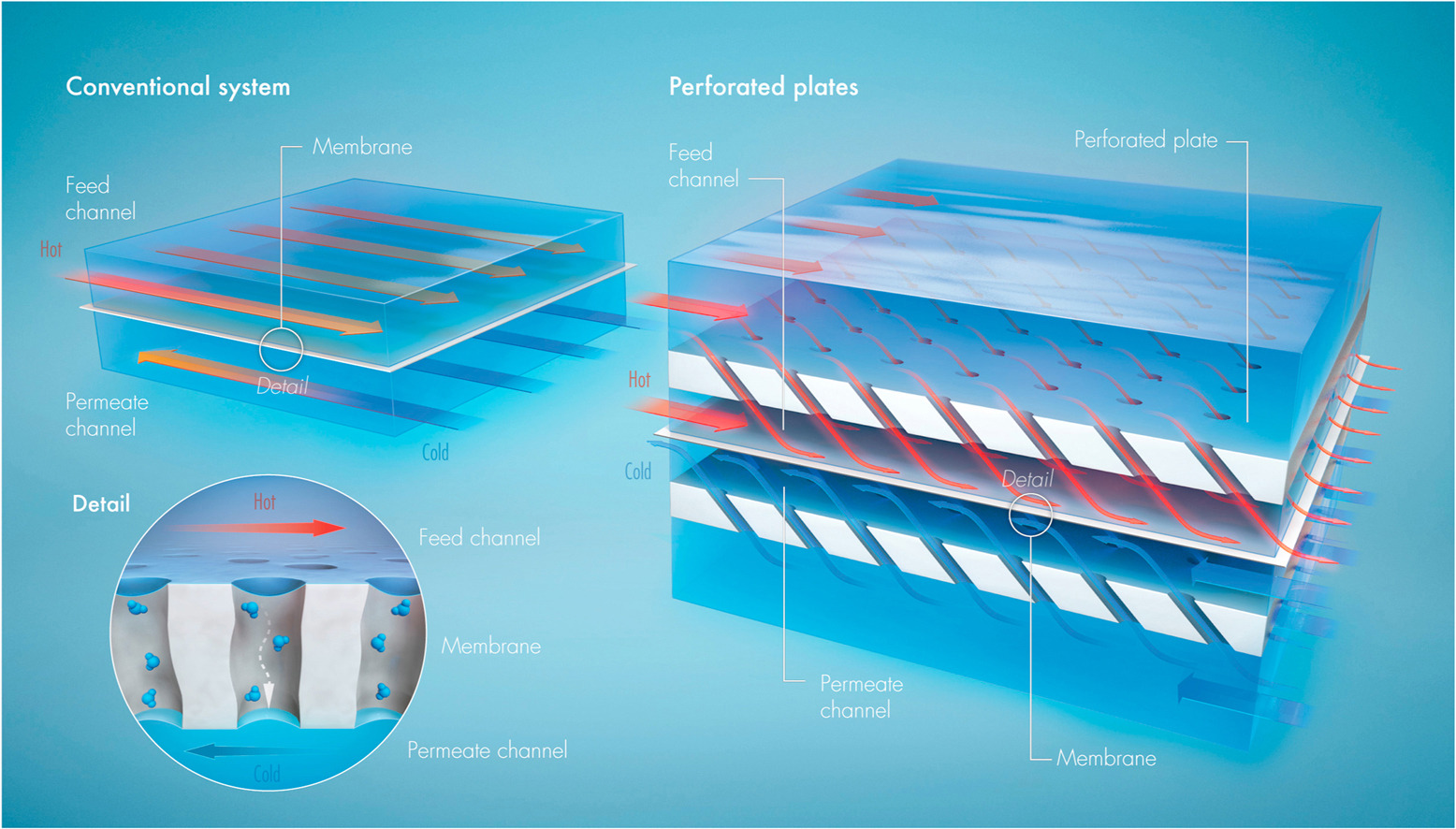

Acknowledging the importance of transitioning from lab-scale processes to industrially viable solutions, our group delves into scalability research. This includes assessing the economic feasibility of seawater desalination, analyzing costs, and implementing strategies to make the processes more cost-effective and scalable for large-scale applications.

Scale-up is the process of translating a concept from the laboratory scale to an industrial technology. Having no underlying methodology per se, it is rather based on the actual basic knowledge of the process, which is then lifted to a higher technology readiness level using judiciously chosen experiments and numerical simulation. Inherently to desalination, coupled physical phenomena involving momentum, heat and mass transfer as well as complex chemical interaction of the species dissolved in the feeds take place, requiring a detailed knowledge of feed composition and membrane characterization. Scalability and economic viability is ensured by taking several steps towards a final process or equipment design. In each step, the design is adjusted and the process conditions tuned for an optimal performance. Numerical modeling, which encompasses different physical scales ranging from molecular dynamics to computational fluid dynamics, is performed to analyze the impact of design changes and bring required modifications accordingly. Simulations are often calibrated with experiments at each scale before extrapolation is performed, thus maximizing the success of the scale-up process.

Illustration of membrane distillation showerhead concept design showing the evolution from conventional system (top left) to the use of perforated plates (right). Size of membrane active area and holes diameter are set in the figure for visualization purpose only.